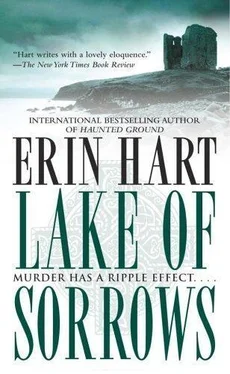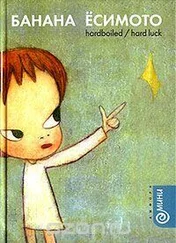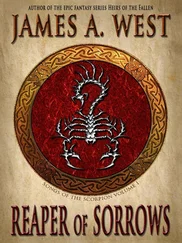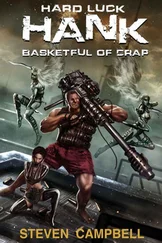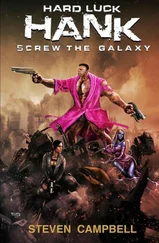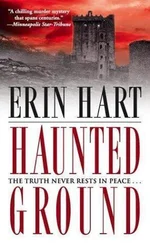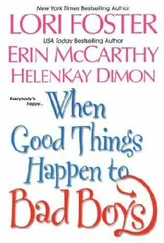Nora’s mind raced over the details of that awful day. Was it possible that Brona had been hiding in the weeds at the apiary because she’d been attacked?
“Do you have some reason to believe my daughter was sexually assaulted?” Scully asked. “Something I didn’t know about? Was she injured in some way—”
The young resident was alarmed. “No, no, nothing like that. But, as I said, we didn’t examine her…”
Michael Scully was silent for a long moment. When he did speak, his voice sounded rough and tired, but not unkind.
“Thank you, Dr. Conran, for being forthright about all this. I do appreciate it. But I have two questions for you. First, I wonder why you would assume that Brona was the victim of an assault?”
“Well, she—I thought—” Nora watched the resident’s face and knew he was terrified that Michael Scully would be angry about an oversight that might get him, his colleagues, and the hospital into trouble. It was also clear that he thought Brona suffered from somewhat diminished mental capacity. Nora pitied the young doctor, but couldn’t fault him; hadn’t she assumed the very same thing?
Scully went on: “Second, if you have some news about her medical condition, I wonder why you’d convey that news to me and not to the patient herself. My daughter is twenty-two years of age, Dr. Conran. She’s not deaf, and her mental faculties are perfectly intact.”
“I’m sorry. I didn’t know—that is, I wasn’t sure. She’s been sedated, and—”
“I’ll go and speak to her. You can consider yourself absolved of that duty.”
The relief that broke across the resident’s face was almost unseemly. He had a bit of work to do on his bedside manner, Nora thought; but when he spoke, her irritation lifted somewhat. “I appreciate your honesty as well. I’m very sorry if I jumped to any wrong conclusions, Mr. Scully, and I apologize sincerely if I’ve offended you. I’ll remember our conversation before making any assumptions.” He offered his hand, and Michael Scully took it. “I’ll leave you now,” Conran said. “You can stay here in the office for a while if you like.”
When he had gone, Nora took her place behind the wheelchair and maneuvered Scully down the hall to Brona’s room again. When they were perhaps ten feet from the door, Michael put up his hand to stop the chair once more. Nora looked into the room to see what had made him pull up short; Brona was still asleep, but tossing in the bed, her hands clasping the bedclothes.
“I have a confession to make,” Scully said. “The night Brona was out until late—the night I rang you—it wasn’t the first time. She wasn’t at home at all the night Ursula Downes was killed. Something awakened me that night. It was a quarter past two, and I went to make sure she was all right. But she wasn’t in her room; she wasn’t anywhere in the house. She didn’t come home all night, and the next day her clothes smelled of wood smoke. When I heard about the murder, I should have said something, told Liam that Brona had been out that night, but I kept quiet. I was worried for her safety, and I thought the fewer people who knew she’d been out that night, the better off we would all be.”
Nora looked down at Scully and saw his shoulders lift in an involuntary sigh, saw the furrowed face, the bright tear trembling at the margin of his eye. “I thought I could protect her. But if I find that someone hurt her, and I kept quiet…”
At that moment, Brona’s eyes opened. She saw them outside the door, and gathered her father in with such a look of affectionate devotion that, standing beside him, Nora felt herself gathered in as well.
Then Brona looked straight into her, past all the fear and trepidation, and Nora felt her breath flowing in and out, felt herself transfixed by the girl’s eyes. Her look was a benediction, a blessing, a knowing acknowledgment of all they had shared. Then Brona’s eyes drifted shut again, and Nora felt as though she’d been released from some sort of thrall.
Liam Ward stood in front of his open cupboard, feeling uninspired by the tins of beans, the bottled curry sauce that met his gaze. He was standing there out of habit, talking to Lugh, who was doing his usual pointing routine at the sight of the dog food tins in the cupboard. This was a ritual they followed every night, and one that still delighted both of them, after all these years together.
“What will it be this evening—mutton stew, or steak and kidney pie?” Lugh raised his tail like a flag. “Steak and kidney pie it is. A wise choice.”
As he opened the tin and filled the dog’s dish, watching him lunge hungrily at the meat and gravy, Ward’s thoughts turned to the case again. He had difficulty letting go until he’d worked out the major knots, though there were always some that refused to disentangle, no matter how much time and patience were applied.
Charlie Brazil’s story about building the bonfire had checked out, but they had no indication of how long he’d stayed there. He’d also omitted one major detail; he had not been alone. Ward had conducted his own search of the scene, and had trod on something in the ashes. Beneath his foot was the bracelet he and Eithne had given Brona for her tenth birthday. It was made of several slender strands of gold metal, twisted into a kind of torc. As far as he knew, Brona always wore the thing, never took it off.
He had picked the bracelet up and slipped it into his pocket, guilt clawing at his conscience. He’d told himself he would not keep its existence hidden if it proved to be significant. But he had already tampered with possible evidence. He pulled the bracelet out of his pocket and stared at it for a few minutes, turning it in his fingers. Time to return it to Brona.
He thought of all the things, like this bracelet, that had something to do with the case but would never find their way into his report. There were too many connections, too many stories that the case did not require, though they were part and parcel of it. Things such as the box full of trophies in Ursula Downes’s flat, things she had evidently nicked from dozens of men. Each object was tagged and documented with a first name and a date, and sometimes there were as many as three or four dates within the space of a single week. What pathological need, what lack had Ursula Downes been trying to fill?
Rachel Briscoe had indeed been the daughter of Thomas Power, as Maguire had surmised. After her parents divorced, the girl had moved to England with her mother, and they’d taken the mother’s maiden name. All of this had been confirmed for them by Sarah Briscoe, who had arrived more than a week ago to claim her daughter’s body. She’d not been interested in what they’d found in Rachel’s flat in Dublin: notebooks filled with tiny, crabbed writing, meticulously documenting her surveillance of Ursula Downes in the weeks and months before the excavation.
They were almost impossible to read, the scribblings of an increasingly disordered mind, but the one thing Ward had taken away from it was that Rachel Briscoe was not a killer, despite what Desmond Quill had said—unless you counted suicide as self-murder. Because that had been the girl’s plan: to find Ursula Downes, to get close to her somehow, and finally to cut her own wrists before the woman who had poisoned her existence.
His own blood had gone cold as he read those words, perhaps written at the very moment the idea had taken shape in Rachel Briscoe’s mind. It had been a long and difficult night, but he had forced himself to continue reading, living through her writings the tormented existence of a young woman who truly wished to die, thinking of another suffering he had been unable to ease.
He looked down at Lugh, who was just finishing the last bit of gravy in his bowl, nudging it across the floor.
Читать дальше
